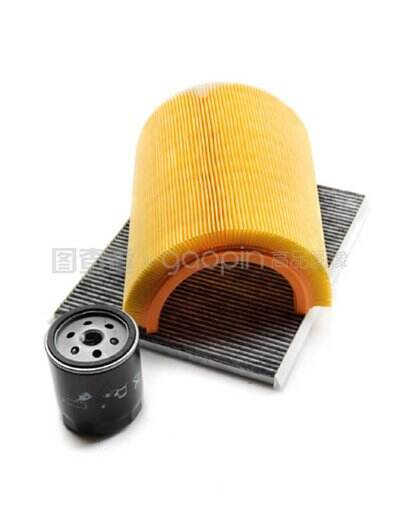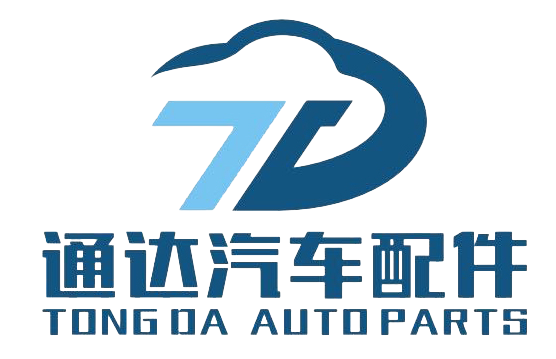Price advantage of automotive filters
Price advantage of automotive filters
The car filter is an important component of the car engine. Its main function is to filter dust, impurities, and other particulate matter from the air, ensuring that the air entering the engine is clean, thereby ensuring the normal operation and performance of the engine. With the development of the automotive industry and the increasing demand for environmental protection, filter technology continues to advance, and various types and brands of filters have emerged in the market. This article will explore the price advantages of automotive filters from multiple perspectives.
1. Reduction of production costs
With the advancement of technology and the realization of economies of scale, the production cost of filters has been significantly reduced. The manufacturing process of modern filters is constantly optimized, the degree of automation is improved, and production efficiency is significantly enhanced. For example, the use of new filtering materials such as synthetic fibers and nanofibers not only improves filtration efficiency, but also reduces material costs. In addition, the improvement of production equipment and automation of production lines have accelerated the production speed of filters, increased the output per unit time, thereby diluting fixed costs and reducing the production cost of individual filters.
2. Intense market competition
The competition in the filter market is fierce, and major brands are constantly launching products with higher cost-effectiveness in order to seize market share. Intense market competition forces manufacturers to lower prices as much as possible while ensuring quality, in order to attract more consumers. Especially with the promotion of e-commerce platforms, consumers can easily compare the prices of different brands and models of filters and choose the most cost-effective product. This transparent market environment further lowers the market price of filters.
3. Price advantage brought by technological progress
The advancement of filter technology not only improves product performance, but also brings price advantages. For example, the application of multi-layer filtration structure and activated carbon technology makes the filtration effect of the filter better and the service life longer. Although the initial research and production costs were high, with the maturity of technology and large-scale production, these costs gradually spread out, ultimately leading to a decrease in the price of filters. In addition, the integration of intelligent sensors and monitoring systems makes filter maintenance more convenient, reduces replacement frequency, and in the long run, lowers consumer usage costs.

4. Economic benefits of environmental design
Modern filters place greater emphasis on environmental protection in their design, such as using renewable materials and detachable, washable designs. This not only reduces the impact on the environment, but also extends the service life of the filter, reduces the frequency of replacement, and saves consumers' usage costs. Although environmental design may increase some costs in the early stages, in the long run, consumers can achieve significant economic benefits by reducing replacement frequency and extending service life.
5. After sales service and brand effect
Although some well-known brands of filters have higher prices, their high-quality after-sales service and brand effect bring more added value to consumers. These brands typically offer longer warranty periods and professional after-sales service to ensure a better user experience for consumers. In addition, filters from well-known brands are more guaranteed in terms of quality and performance, giving consumers more confidence in their choices and reducing the risk of frequent replacement due to quality issues, thereby lowering overall usage costs.
6. Price advantages of e-commerce platforms
The development of e-commerce platforms has provided more channels and price advantages for the sales of filters. Through e-commerce platforms, consumers can directly purchase filters from manufacturers or authorized distributors, reducing intermediate links and lowering purchasing costs. In addition, promotional activities and preferential policies on e-commerce platforms also enable consumers to purchase high-quality filters at lower prices. For example, during shopping festivals such as Singles' Day and Black Friday, major brands of filters usually offer significant discounts, allowing consumers to purchase their desired products at more favorable prices.
7. Price discounts for bulk purchases
For customers such as fleets and repair shops who use filters in large quantities, they can obtain greater price discounts through bulk purchases. Filter manufacturers and distributors typically offer bulk discounts and customized services to large customers, further reducing the procurement cost of individual filters. In addition, some large car companies and repair chain stores have established long-term cooperative relationships with filter manufacturers, obtaining more favorable prices and higher quality services through long-term stable procurement contracts.

8. Government policies and subsidies
Some countries and regions have introduced a series of preferential policies and subsidy measures to promote environmental protection and energy conservation, encouraging the use of efficient and environmentally friendly filters. For example, the government provides subsidies for filter products that meet environmental standards, reducing consumers' purchasing costs. In addition, for some filter products with significant energy-saving and emission reduction effects, the government will also provide tax incentives and policy support, further reducing production and sales costs, making the market price of filters more affordable.
përfundim
In summary, the price advantage of automotive filters mainly comes from various factors such as reduced production costs, fierce market competition, price advantages brought by technological progress, economic benefits of environmentally friendly design, after-sales service and brand effect, price advantages of e-commerce platforms, price discounts for bulk procurement, and government policies and subsidies. With the continuous advancement of technology and further development of the market, the price advantage of automotive filters will become more apparent, and consumers will be able to enjoy higher quality products and services at lower prices.
The car filter is an important component of the car engine. Its main function is to filter dust, impurities, and other particulate matter from the air, ensuring that the air entering the engine is clean, thereby ensuring the normal operation and performance of the engine. With the development of the automotive industry and the increasing demand for environmental protection, filter technology continues to advance, and various types and brands of filters have emerged in the market. This article will explore the price advantages of automotive filters from multiple perspectives.
1. Reduction of production costs
With the advancement of technology and the realization of economies of scale, the production cost of filters has been significantly reduced. The manufacturing process of modern filters is constantly optimized, the degree of automation is improved, and production efficiency is significantly enhanced. For example, the use of new filtering materials such as synthetic fibers and nanofibers not only improves filtration efficiency, but also reduces material costs. In addition, the improvement of production equipment and automation of production lines have accelerated the production speed of filters, increased the output per unit time, thereby diluting fixed costs and reducing the production cost of individual filters.
2. Intense market competition
The competition in the filter market is fierce, and major brands are constantly launching products with higher cost-effectiveness in order to seize market share. Intense market competition forces manufacturers to lower prices as much as possible while ensuring quality, in order to attract more consumers. Especially with the promotion of e-commerce platforms, consumers can easily compare the prices of different brands and models of filters and choose the most cost-effective product. This transparent market environment further lowers the market price of filters.
3. Price advantage brought by technological progress
The advancement of filter technology not only improves product performance, but also brings price advantages. For example, the application of multi-layer filtration structure and activated carbon technology makes the filtration effect of the filter better and the service life longer. Although the initial research and production costs were high, with the maturity of technology and large-scale production, these costs gradually spread out, ultimately leading to a decrease in the price of filters. In addition, the integration of intelligent sensors and monitoring systems makes filter maintenance more convenient, reduces replacement frequency, and in the long run, lowers consumer usage costs.
4. Economic benefits of environmental design
Modern filters place greater emphasis on environmental protection in their design, such as using renewable materials and detachable, washable designs. This not only reduces the impact on the environment, but also extends the service life of the filter, reduces the frequency of replacement, and saves consumers' usage costs. Although environmental design may increase some costs in the early stages, in the long run, consumers can achieve significant economic benefits by reducing replacement frequency and extending service life.
5. After sales service and brand effect
Although some well-known brands of filters have higher prices, their high-quality after-sales service and brand effect bring more added value to consumers. These brands typically offer longer warranty periods and professional after-sales service to ensure a better user experience for consumers. In addition, filters from well-known brands are more guaranteed in terms of quality and performance, giving consumers more confidence in their choices and reducing the risk of frequent replacement due to quality issues, thereby lowering overall usage costs.
6. Price advantages of e-commerce platforms
The development of e-commerce platforms has provided more channels and price advantages for the sales of filters. Through e-commerce platforms, consumers can directly purchase filters from manufacturers or authorized distributors, reducing intermediate links and lowering purchasing costs. In addition, promotional activities and preferential policies on e-commerce platforms also enable consumers to purchase high-quality filters at lower prices. For example, during shopping festivals such as Singles' Day and Black Friday, major brands of filters usually offer significant discounts, allowing consumers to purchase their desired products at more favorable prices.
7. Price discounts for bulk purchases
For customers such as fleets and repair shops who use filters in large quantities, they can obtain greater price discounts through bulk purchases. Filter manufacturers and distributors typically offer bulk discounts and customized services to large customers, further reducing the procurement cost of individual filters. In addition, some large car companies and repair chain stores have established long-term cooperative relationships with filter manufacturers, obtaining more favorable prices and higher quality services through long-term stable procurement contracts.
8. Government policies and subsidies
Some countries and regions have introduced a series of preferential policies and subsidy measures to promote environmental protection and energy conservation, encouraging the use of efficient and environmentally friendly filters. For example, the government provides subsidies for filter products that meet environmental standards, reducing consumers' purchasing costs. In addition, for some filter products with significant energy-saving and emission reduction effects, the government will also provide tax incentives and policy support, further reducing production and sales costs, making the market price of filters more affordable.
përfundim
In summary, the price advantage of automotive filters mainly comes from various factors such as reduced production costs, fierce market competition, price advantages brought by technological progress, economic benefits of environmentally friendly design, after-sales service and brand effect, price advantages of e-commerce platforms, price discounts for bulk procurement, and government policies and subsidies. With the continuous advancement of technology and further development of the market, the price advantage of automotive filters will become more apparent, and consumers will be able to enjoy higher quality products and services at lower prices.

 EN
EN







































